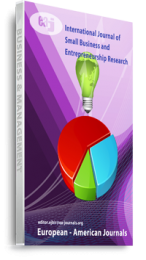The objective of this study was to identify profitable and viable SMEs which could form a basis for an economic empowerment programme for the restive unemployed youths in the Niger Delta Region. The focus of the study is on SMEs which are registered with the co-ordinating agency of government and are therefore considered bankable by financial institutions. A survey of SMEs was conducted in four major urban centres of Aba in Abia State, Uyo in Akwa Ibom State, Benin in Edo State and Port Harcourt in Rivers State and their environs. The cities were purposively selected because they are known centres of economic activities around which industrial establishments and SMEs cluster in the region. The SMEs were registered by government agencies, under eleven categories, with unequal number of enterprises. One hundred enterprises were purposively selected in each of the four centres, for a total of four hundred, ensuring that all enterprise types, in each category, were represented. Applying the simple analytical tools of total factor productivity, net income (NI) and rate of return on total investment (RRTI), the ten most viable SMEs were identified for the states as follows: Abia; metal fabrication, garments, interlocking tiles, concrete electric poles, printing works, saw mills, metal construction, paints, air conditioner and refrigerator repairs and restaurant; Akwa Ibom, paints, oil palm processing, garment/fashion, furniture works, leather bags, bakery and confectionery, metal construction, electronic repairs, brick making and wood arts. Edo, Auto electric, air conditioner and refrigeration, fish production, candle production, oil palm processing, auto mechanics, wood arts, metal works, poultry production and garment/fashion. Rivers: Hair dressing, fish production, metal works, oil palm processing, foot wears, aluminum and glass fabrication, cassava processing, air conditioner and refrigeration, block moulding, restaurant.
Keywords: Niger-Delta, Productivity, Profitability, Rate of Return, SMEs, Youths

